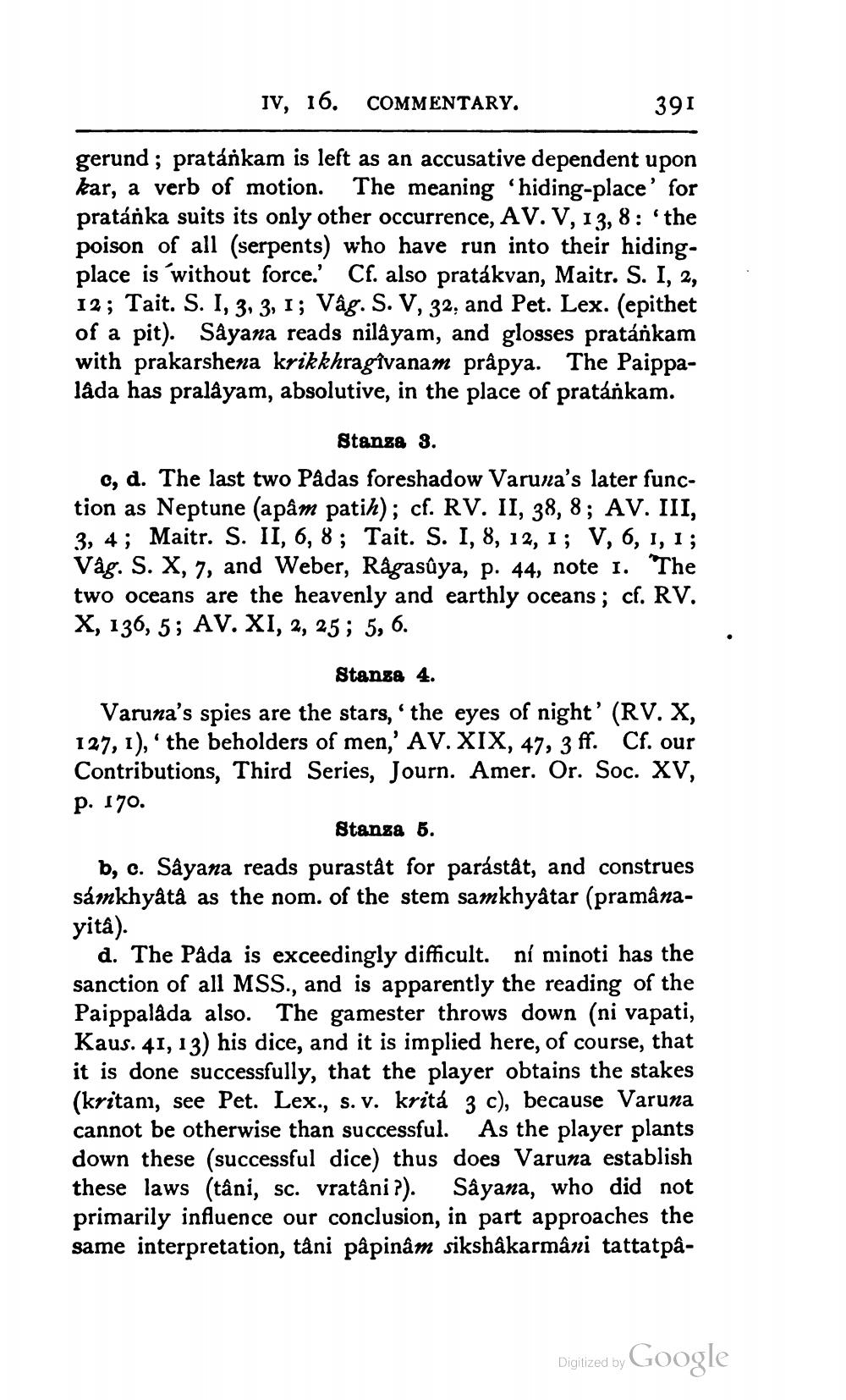________________
391
gerund; pratánkam is left as an accusative dependent upon kar, a verb of motion. The meaning 'hiding-place' for pratáňka suits its only other occurrence, AV. V, 13, 8: 'the poison of all (serpents) who have run into their hidingplace is without force.' Cf. also pratákvan, Maitr. S. I, 2, 12; Tait. S. I, 3, 3, 1; Vâg. S. V, 32, and Pet. Lex. (epithet of a pit). Sâyana reads nilâyam, and glosses pratánkam with prakarshena krikkhragîvanam prâpya. The Paippalâda has pralâyam, absolutive, in the place of pratánkam.
IV, 16.
COMMENTARY.
Stanza 3.
c, d. The last two Pâdas foreshadow Varuna's later function as Neptune (apâm patih); cf. RV. II, 38, 8; AV. III, 3, 4; Maitr. S. II, 6, 8; Tait. S. I, 8, 12, 1; V, 6, 1, 1; Våg. S. X, 7, and Weber, Râgasûya, p. 44, note 1. The two oceans are the heavenly and earthly oceans; cf. RV. X, 136, 5; AV. XI, 2, 25; 5, 6.
Stanza 4.
Varuna's spies are the stars,' the eyes of night' (RV. X, 127, 1),' the beholders of men,' AV. XIX, 47, 3 ff. Cf. our Contributions, Third Series, Journ. Amer. Or. Soc. XV, p. 170.
Stanza 5.
b, c. Sâyana reads purastât for parástât, and construes sámkhyâtâ as the nom. of the stem samkhyâtar (pramânayitâ).
d. The Pâda is exceedingly difficult. ní minoti has the sanction of all MSS., and is apparently the reading of the Paippalâda also. The gamester throws down (ni vapati, Kaus. 41, 13) his dice, and it is implied here, of course, that it is done successfully, that the player obtains the stakes (kritam, see Pet. Lex., s. v. kritá 3 c), because Varuna cannot be otherwise than successful. As the player plants down these (successful dice) thus does Varuna establish these laws (tâni, sc. vratâni ?). Sâyana, who did not primarily influence our conclusion, in part approaches the same interpretation, tâni pâpinâm sikshâkarmâni tattatpâ
Digitized by
Google




